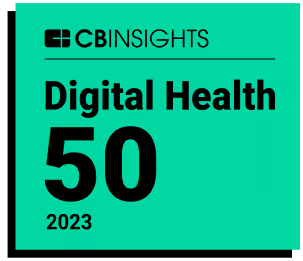Eric Glazer, the host of the Bright Spots in Healthcare podcast, is an expert at distilling healthcare success stories in ways that inspire medical professionals to learn from them. His approach made us particularly excited to recently team up with him for a webinar delving into how to use AI to benefit patients, clinicians, and healthcare organizations. The hour-long session – The New Physician Playbook: AI, Workflows & Value-Based Care in Action, which is now available to watch on-demand – offers viewers a unique opportunity to learn from the rich and varied expertise of five panelists, including our own VP of Value-Based Care, Dana McCalley.
To help all types of healthcare organizations and medical professionals make the most of AI, here are four of the webinar’s most insightful and useful takeaways.
AI must be a win-win for patients and healthcare organizations
The participants highlighted that AI’s transformation of healthcare is happening in the context of the transition towards value-based care. Even though that transition creates a significant administrative burden for clinicians, AI can do much of the heavy lifting for them, empowering them to focus more on patient care while also helping optimize their risk adjustment factor (RAF) scores and performance on quality measures. When clinicians are able to focus more on delivering the best care possible to each patient, the result is better health outcomes for patients.
The conversation also explored the critical role AI is taking on in the realm of population health. “A lot of the work that we do in population health is identify[ing] our patient population. We try to be proactive. We need to know what may happen in the future and then be able to provide services to them in a proactive way through registries and things of that sort,” said Dr. Reshma Gupta, Chief of Population Health and Accountable Care at UC Davis Health. “So [my organization implemented] something that nearly all population health programs need, which is specifically building an AI risk model for a patient population to identify who might be at future risk of a hospitalization or ED visit over some timeframe. And … by identifying that, we can deploy social workers, care managers, [and] do needs assessments for patients.”
Build cross‑functional, clinician‑led teams early
When panelists discussed what it takes to get the necessary buy-in and implement AI effectively, one key factor emerged: having clinicians lead AI initiatives from the get-go. By bringing together clinicians with varied experience to lead their colleagues in starting to work with an AI solution, healthcare organizations can help build trust and encourage their team members to use the new technology – while also helping ensure that the technology is set up to meet the day-to-day needs of actual clinicians.
“We’re not one group in one corner of the institution knocking on their door, trying to get in through the back window. We’re coming in with a health system leader that works across different venues of care and population health, with someone in IT, with someone in equity and community. And so you have three leaders that have a clinical background, all being able to understand the context of what [their fellow clinicians are] saying,” Dr. Gupta recounted, describing how her organization benefited from implementing AI in a clinician-driven way. “And so they felt like they were better heard… And that trust was developed [early]. And it wasn’t saying, ‘we’re going to force you to do this.’ It was very much a conversation.”
AI’s impact on clinician satisfaction is also crucial
While the most important benefit of AI in healthcare is its effect on patients’ health, our conversation emphasized that its impact on clinicians is also a big part of what makes this technology such a game changer. AI’s ability to lighten their administrative workload can help fight burnout and give a serious boost to clinicians’ job satisfaction – ultimately benefiting both healthcare organizations and patients.
“The easier you make it to do the right thing, the more excited docs are about the fact that they can go into the exam room and do what they enjoy most, which is just treating the patient and being focused on the patient,” said Dr. Eric Penniman, Executive Medical Director at Summit Medical Group. “Job satisfaction has definitely gone up [as a result of AI]. We have done some initial surveys showing that docs are enjoying this tool more and more. And now we’re at about a 90% daily utilization rate for the tool, which I’m thrilled about.”
Match roll‑out tempo to clinical risk
How quickly should healthcare organizations deploy new AI technology? While there is no one-size-fits-all answer to that question, one recommendation that came out of our discussion is to tailor the pace of change to the level of clinical risk presented by particular scenarios.
Ram Rimal, Manager of Data Science Engineering at UNC Health, distinguished between projects that can (and should) be implemented quickly and those whose implementation should be “big and slow” due to their large scale and high stakes. “My team was asked to build a particular algorithm around ED sepsis. Can we predict who might have sepsis in [the] ED?” he recounted. “And we have more than 15 hospitals across the system. So that is one of the reasons to go slow, because the impact is really big. You want to get it right.”
{{text-banner}}



.png)

.png)




.png)













